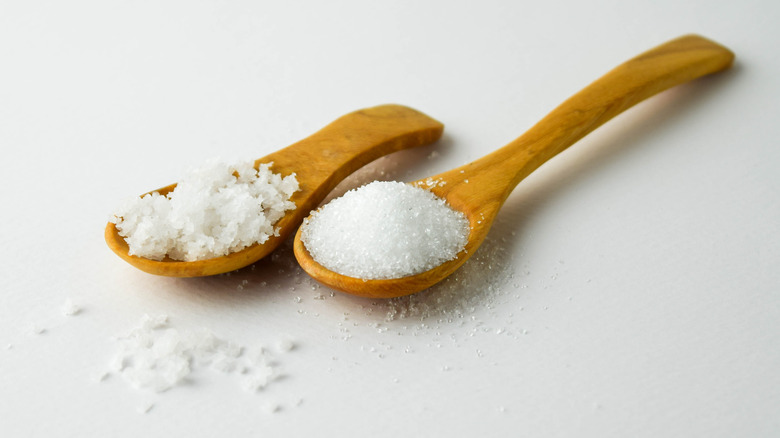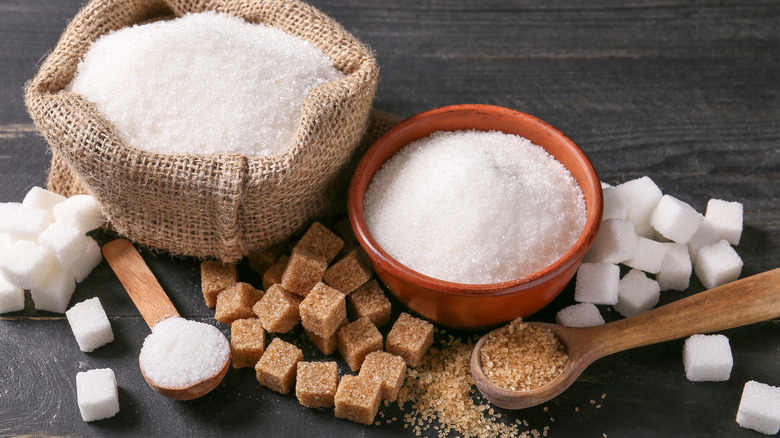Sugar Vs Salt: Which One Is Worse For You?
Salty or sweet? There's been an age-old debate about which is best to top your grits and moreover, which is better — or worse — for your health (via BBC News). Many nutrition and health experts don't necessarily recommend cutting out any one food and instead advise moderation. "It's important for both children and adults to be sensible and enjoy all foods and beverages, but not to overdo it on any one type of food," according to the American Academy of Pediatrics.
Both salt and sugar can be naturally found in whole foods. And, of course, it is wise to remember that any nutrient can be unhealthy when consumed in excess (via San Francisco Chronicle). Creating a nutritious base of organic fruits, vegetables, and grains in frequently home-cooked meals equips one to better monitor sugar and salt intake. Still, you may be wondering if it's better to stick with a sweet treat or a salty snack even in moderation. Let's take a look.
For better or worse
Sodium can be found in processed foods and restaurant foods, often going unnoticed. Per Queensland Health, salt, in small doses, balances blood pressure and fluid levels in the body, making reasonable amounts essential for good health. According to Live Science, consistent intake of excess salt increases fluid retention causing hypertension and a greater chance of stroke or kidney disease. Yet, many experts consider sugar more of a risk.
"Historically, doctors have focused on limiting sodium to control blood pressure but more recently we're seeing emerging research that shows added sugars can raise blood pressure and overall are dangerous to heart health in other ways," Dr. Christopher Dubuque, an internist, told Samaritan Health Services. Indeed, an abundance of sugar in one's diet can cause inflammation and elevated blood sugar levels. The not-so-sweet effects also include "impaired cognitive function," depression, high blood pressure, increased tendency towards binge eating, and a higher risk of diabetes or heart disease among other complications (via Tri-City Medical Center). "Average sodium intake has remained somewhat stable over the years even as cardiovascular disease has grown," Dr. Dubuque continued, "but people are getting an unprecedented amount of sugar in their diet. There's a lot of room for improvement."
If you're concerned about your sugar or salt intake and want to revamp your diet, consider reducing your added sugar intake and seek advice from a registered nutritionist.


